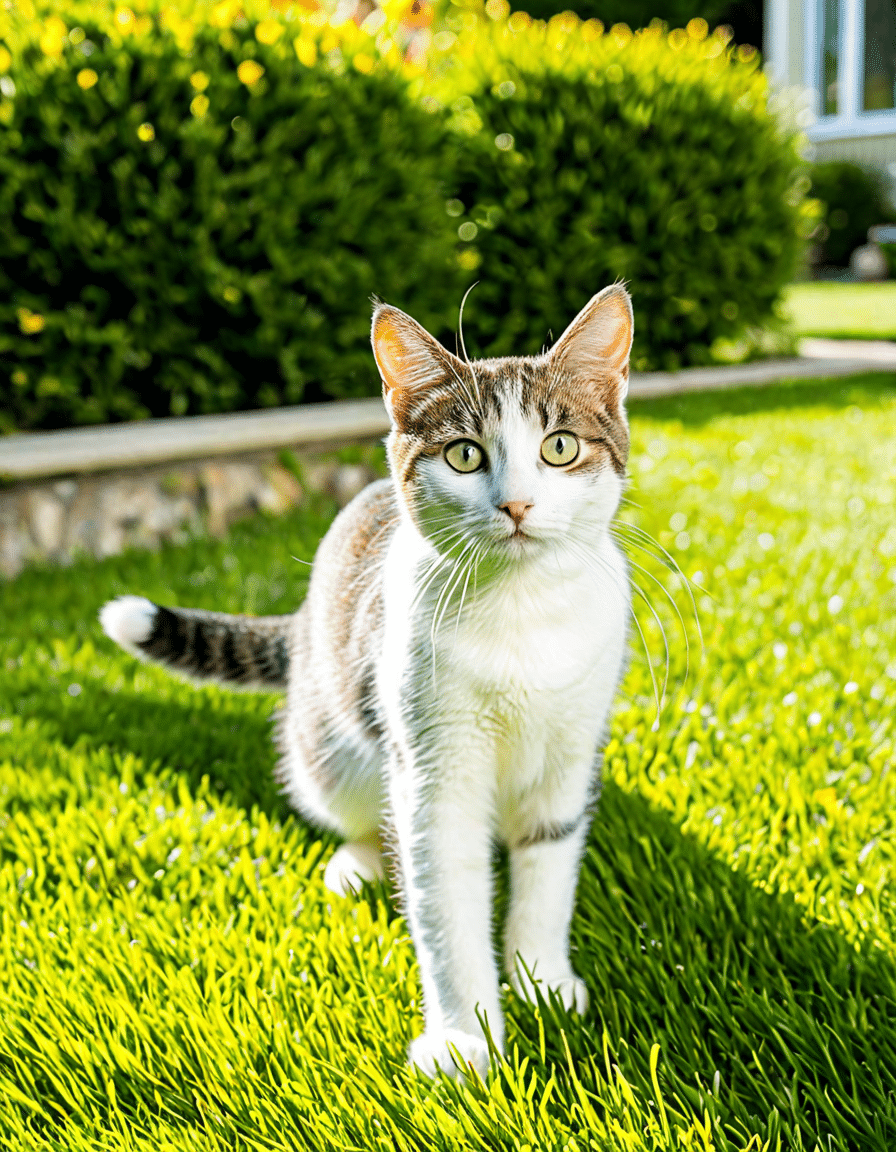When it comes to keeping our lawns pest-free, many pet owners turn to imidacloprid lawn pesticides. This popular neonicotinoid pesticide helps control fleas, ticks, and various insects invading our yards. However, understanding the implications of using imidacloprid lawn pesticides and pets is crucial for every responsible pet owner.
In this article, we’ll delve deep into what imidacloprid is, the potential risks it poses to our furry companions, safe application practices, and its wider environmental impact. By the end, you’ll be well-equipped to make informed decisions that safeguard both your pets and your home.
1. Understanding Imidacloprid: What It Is and How It Works
Imidacloprid is a widely used pesticide targeting various pests found in gardens and lawns. Its targeted approach to controlling insects makes it a go-to for many homeowners. But how does it work?
Mechanism of Action: Imidacloprid disrupts neurotransmission within the central nervous system of insects. This disruption leads to paralysis and death, effectively eliminating unwelcome pests. But while this may be effective for insect control, the potential risks for non-target animals, including our beloved pets, should give us pause.
Pet owners should be aware that while imidacloprid lawn pesticides can manage pests effectively, they come with important safety considerations for pets.

2. The Risks of Imidacloprid Lawn Pesticides and Pets: Essential Facts
While imidacloprid serves its purpose in pest management, it poses notable risks to pets. Here are key details to keep in mind:
3. Safe Application Practices for Imidacloprid Lawn Pesticides and Pets
To ensure your pets’ safety while dealing with imidacloprid lawn pesticides, applying best practices is essential:

4. The Broader Impact: Imidacloprid and Environmental Health
The implications of using imidacloprid stretch beyond pet safety and touch on critical environmental health issues, such as:
Innovative Wrap-Up: Your Pet’s Safety Matters
Navigating the concerns surrounding imidacloprid lawn pesticides is vital for every responsible pet owner. Understanding the potential risks is the first step, followed by implementing safe practices and staying informed about available alternatives.
By doing so, you ensure the safety of your furry friends and contribute to a healthier environment. Always consult with a veterinarian for tailored advice regarding your specific pets and the best practices for pest management in your area. With the right knowledge and precautions, you can achieve peace of mind in both pet health and environmental stewardship.
For more on pet care, check out our articles on chinchilla orange balance and the chameleon lifespan, and if you’re curious about the lifespan Of Staffy Dogs, we’ve got that covered too! Remember, keeping your pets safe is always our top priority!
Imidacloprid Lawn Pesticides and Pets: Fun Trivia and Interesting Facts
What You Didn’t Know About Imidacloprid
Did you know that imidacloprid is one of the most widely used pesticides for lawn care? It’s a common ingredient in many products designed to tackle pesky insects. However, while it effectively combats pests, it doesn’t come without its risks, especially for curious pets. Interestingly, this insecticide works by disrupting an insect’s nervous system—so imagine how it might affect our furry friends, like dogs and cats, who might unintentionally ingest treated grass. Just like wondering are Hedgehogs a rodent? many pet owners need clarity on these important issues.
The Hidden Dangers
Here’s a fun tidbit: research shows that imidacloprid can linger in the environment for quite some time, which raises concerns for those with pets that love to romp around outdoors. Pets, especially cats and dogs, can be particularly sensitive to chemical exposure. For instance, a casual walk on the grass might lead to accidental ingestion of pesticide residues. Talk about a reason to be concerned—much like a pet parent learning about the risks of compression Socks For men during marathon training! Knowing how to protect your pets from these hidden dangers is crucial.
Best Practices for Pet Owners
So, how can you keep your furry companions safe? Keeping your lawn maintained and being mindful of pesticide application is key. If you must use imidacloprid lawn pesticides, consider scheduling treatments when your pets are indoors. Always read labels carefully to understand the re-entry times post-application. This level of attention pays off, ensuring your pets can safely explore their outdoor adventures. Just like picking the right pair of Lululemon Mens pants for comfort, pet safety requires thoughtful decisions, ensuring your fur babies can frolic without worries!



